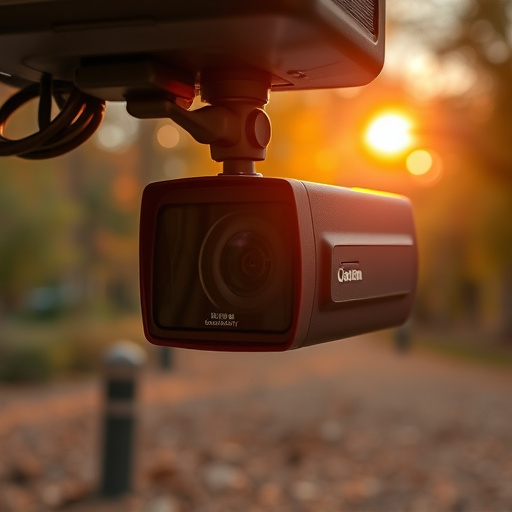Surveillance technologies, especially secret nanny cameras, require professionals to navigate a complex legal landscape. Understanding and adhering to local Laws Regarding Secret Nanny Cameras is essential for ethical operations, privacy protection, and compliance. Counter-surveillance sweeps involve detecting hidden devices through meticulous physical inspections and advanced equipment, with strict documentation to support legal cases. Balancing security needs and privacy rights is crucial, limiting the use of such methods to authorized situations guided by relevant laws.
In an era where privacy is a paramount concern, understanding counter surveillance sweep methods is crucial. This professional guide navigates the complex landscape of surveillance laws, especially those regarding secret nanny cameras, offering practical insights into identifying potential devices and implementing effective countermeasures. From documenting evidence to upholding ethical standards, this comprehensive resource equips individuals with the knowledge to protect their privacy in an increasingly connected world.
- Legal Framework: Understanding Surveillance Laws
- Identifying Potential Surveillance Devices
- Conducting Effective Counter Measures
- Documenting and Preserving Evidence
- Professional Ethics: Respecting Privacy Rights
Legal Framework: Understanding Surveillance Laws
The legal framework surrounding surveillance, particularly the use of hidden cameras, is a complex and intricate web of regulations designed to protect privacy rights while acknowledging legitimate security concerns. In many jurisdictions, there are strict laws regarding secret nanny cameras or any form of covert surveillance. These laws vary significantly from country to country and even state to state, reflecting diverse cultural perspectives on individual privacy versus public safety.
Understanding the Laws Regarding Secret Nanny Cameras is a critical first step for professionals in this field. In general, installation and use of such devices without consent are illegal. Consent means clear, voluntary, and informed agreement from all parties involved, especially when it concerns private spaces like homes or offices. Professional surveillance sweep teams must stay updated on local laws to ensure their methods remain ethical and within the legal bounds, protecting both clients’ privacy rights and their own professional integrity.
Identifying Potential Surveillance Devices
Identifying potential surveillance devices is a crucial step in conducting a counter-surveillance sweep, especially considering the ethical and legal implications surrounding secret cameras, like nanny cams. Professionals must stay informed about local laws regarding hidden recording devices, as these regulations vary widely between jurisdictions. For instance, many regions have strict rules against placing cameras without consent in private homes or workplaces, often referred to as “bustle zones.”
A thorough sweep involves examining spaces for any suspicious hardware or unusual installations. This includes checking common areas like windows, doors, and light fixtures, where tiny hidden cameras might be discreetly placed. Additionally, professionals should look for signs of tampering with electrical outlets, outlets covered by tape, or unusual wiring, which could indicate the presence of a covert listening device or video surveillance equipment.
Conducting Effective Counter Measures
Conducting effective counter measures is an essential aspect of maintaining privacy and security, especially in light of evolving surveillance technologies. One critical step is understanding and adhering to laws regarding secret nanny cameras or any hidden recording devices. Different regions have stringent regulations against intrusive surveillance, so professionals must stay updated on these legal frameworks. This knowledge ensures that counter-surveillance techniques remain ethical and compliant.
By employing legal methods, experts can detect and disable covert listening devices, hidden cameras, and other forms of unauthorized monitoring. It involves utilizing specialized equipment to identify signals, analyzing patterns, and implementing physical security measures like secure installations, encryption protocols, and access control systems. These professional counter-surveillance sweep services are vital for businesses, homes, and individuals seeking protection from invasive monitoring.
Documenting and Preserving Evidence
When conducting a counter surveillance sweep, documenting and preserving evidence is paramount. This involves meticulously recording any signs of secret cameras or other surveillance devices, such as hidden microphones or tracking software. Professionals use specialized equipment to detect and document these devices, including infrared cameras, signal detectors, and digital forensics tools. Every piece of evidence collected must be documented with detailed notes, photographs, and video footage to ensure its admissibility in legal proceedings.
It’s crucial to be aware of the laws regarding secret nanny cameras and other hidden surveillance devices in your jurisdiction. Many regions have strict regulations against the unauthorized use of such devices, with penalties ranging from fines to imprisonment. Understanding these laws is essential for professionals conducting counter surveillance sweeps to ensure they are acting within legal boundaries. Proper documentation not only aids in legal proceedings but also helps to maintain the integrity and validity of evidence collected during the sweep.
Professional Ethics: Respecting Privacy Rights
In the realm of counter surveillance, professionals must navigate a delicate balance between achieving comprehensive sweeps and respecting privacy rights. The use of secret nanny cameras or any hidden devices is governed by strict laws regarding surveillance, which vary significantly across jurisdictions. As professionals, it’s crucial to stay informed about these legal constraints to ensure every action complies with ethical standards and applicable regulations.
Respecting individual privacy is not merely a moral imperative but also a cornerstone of democratic societies. Professional ethics demand that counter surveillance methods be employed only when authorized by proper legal channels and in cases where there’s a compelling need, such as investigating serious criminal activities or ensuring the safety of vulnerable individuals. Any deviation from these principles can lead to severe consequences, including legal repercussions and damage to reputations.
In the realm of counter surveillance, understanding the legal framework regarding secret nanny cameras is paramount. By identifying potential surveillance devices and implementing effective counter measures, individuals can protect their privacy effectively. It’s crucial to document and preserve evidence while adhering to professional ethics and respecting privacy rights. Armed with this knowledge, folks can navigate this complex landscape, ensuring a safer and more secure environment for all.
